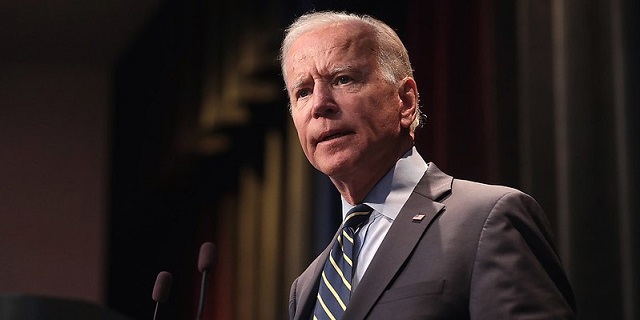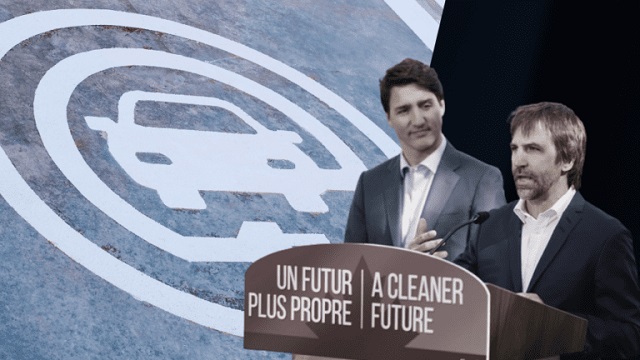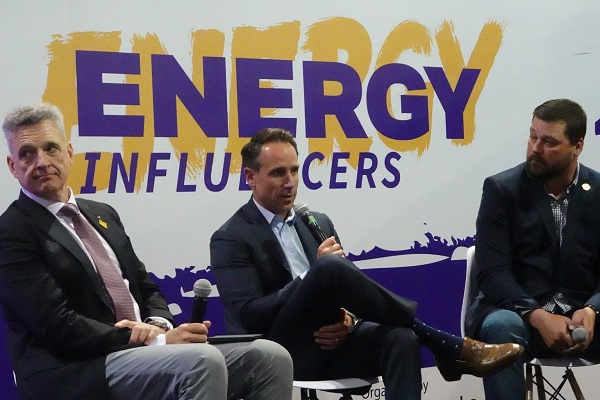Automotive
U.S. politics looms large over Trudeau/Ford EV gamble

From the Fraser Institute
Political developments in the U.S. over the past few years have substantially increased the risk of any investment that relies on unrestricted access to the U.S. market
Last week, the Trudeau government and the Ford government announced a new multi-billion dollar taxpayer-funded subsidy for Honda to expand its Alliston, Ontario plant to manufacture electric vehicles (EV) and host a large EV battery plant. Eventually, the direct and indirect subsidies could total $10 billion from the two governments.
The Honda announcement follows earlier deals with Northvolt, Stellantis and Volkswagen to build and operate EV battery and auto assembly plants in Ontario. According to the Parliamentary Budget Officer, these three deals may total $50.7 billion after accounting for the cost of government borrowing to finance the subsidies and foregone corporate tax revenue from tax abatements tied to production.
Clearly, if future taxpayers across the country (not just in Ontario) are to avoid a huge additional tax burden or suffer reductions in government services, a lot needs to go right for Canada’s EV industry.
In particular, there must emerge sufficient market demand for EVs so these “investments” in the EV auto sector will be fully paid for by future tax revenues from corporate and personal income taxes levied on companies and workers in the EV sector. During their joint announcement of the Honda deal, both Prime Minister Trudeau and Premier Ford ignored this elephant in the room while claiming that the Honda deal will mean 240,000 vehicles a year manufactured at the site and 4,200 jobs preserved, while adding another 1,000 jobs.
By way of perspective, in 2023 around 185,000 EV vehicles were sold in Canada—about 11 per cent of all new cars sold in Canada that year. This is considerably less than the target capacity of the Honda complex and the total expected production capacity of Canada’s EV sector once all the various announced subsidized production facilities are in operation. In contrast, 1.2 million EVs were sold in the United States.
The demand for EVs in Canada will likely grow over time, especially given the increased incentive the federal government now has to ensure, through legislation or regulation, that Canadians retire their gas-powered vehicles and replace them with EVs. However, the long-run financial health of Canada’s EV sector requires continued access to the much larger U.S. market. Indeed, Honda’s CEO said his company chose Canada as the site for their first EV assembly plant in part because of Canada’s access to the U.S. market.
But political developments in the U.S. over the past few years have substantially increased the risk of any investment that relies on unrestricted access to the U.S. market. The trade protectionist bent of Donald Trump, the Republican nominee in the upcoming presidential election, is well known and he reportedly plans to impose a broad 10 per cent tariff on all manufactured imports to the U.S. if elected.
While the Canada-U.S.-Mexico Free Trade Agreement ostensibly gives Canadian-based EV producers tariff-free access to the U.S. market, Trump could terminate the treaty or at least insist on major changes in specific Canadian trade policies that he criticized during his first term, including supply management programs for dairy products. The trade agreement is up for trilateral review in 2025, which would allow a new Trump administration to demand political concessions such as increased Canadian spending on defence, in addition to trade concessions.
Nor would the re-election of President Joe Biden immunize Canada from protectionist risks. Biden has been a full-throated supporter of unionized U.S. auto workers and has staked his administration’s legacy on the successful electrification of the U.S. transportation sector through domestic production. Given his government’s financial commitment to growing a domestic EV sector, Biden might well impose trade restrictions on Canada if Canadian exports start to displace domestic production in the U.S.
In short, Canadian politicians, most notably Justin Trudeau and Doug Ford, have staked the future of Canada’s heavily subsidized domestic EV sector on the vagaries of the U.S. political process, which is increasingly embracing “America First” industrial policies. This may turn out to be a very costly gamble for Canadian taxpayers.
Author:
Automotive
Supreme Court Delivers Blow To California EV Mandates


From the Daily Caller News Foundation
“The Supreme Court put to rest any question about whether fuel manufacturers have a right to challenge unlawful electric vehicle mandates”
The Supreme Court sided Friday with oil companies seeking to challenge California’s electric vehicle regulations.
In a 7-2 ruling, the court allowed energy producers to continue their lawsuit challenging the Environmental Protection Agency’s decision to approve California regulations that require manufacturing more electric vehicles.
“The government generally may not target a business or industry through stringent and allegedly unlawful regulation, and then evade the resulting lawsuits by claiming that the targets of its regulation should be locked out of court as unaffected bystanders,” Justice Brett Kavanaugh wrote in the majority opinion. “In light of this Court’s precedents and the evidence before the Court of Appeals, the fuel producers established Article III standing to challenge EPA’s approval of the California regulations.”
Kavanaugh noted that “EPA has repeatedly altered its legal position on whether the Clean Air Act authorizes California regulations targeting greenhouse-gas emissions from new motor vehicles” between Presidential administrations.
“This case involves California’s 2012 request for EPA approval of new California regulations,” he wrote. “As relevant here, those regulations generally require automakers (i) to limit average greenhouse-gas emissions across their fleets of new motor vehicles sold in the State and (ii) to manufacture a certain percentage of electric vehicles as part of their vehicle fleets.”
The D.C. Circuit Court of Appeals previously rejected the challenge, finding the producers lacked standing to sue.
“The Supreme Court put to rest any question about whether fuel manufacturers have a right to challenge unlawful electric vehicle mandates,” American Fuel & Petrochemical Manufacturers (AFPM) President and CEO Chet Thompson said in a statement.
“California’s EV mandates are unlawful and bad for our country,” he said. “Congress did not give California special authority to regulate greenhouse gases, mandate electric vehicles or ban new gas car sales—all of which the state has attempted to do through its intentional misreading of statute.”
Automotive
Opposition Conservatives fail in attempt to “Pull the Plug” on Carney’s Electric Vehicle Mandate

From Conservative Party Communications
After a Lost Liberal Decade of rising costs and slow growth, Mark Carney wants you to think his government has moved on from Justin Trudeau’s failed policies.
Unfortunately for Canadians, Carney has no interest in scrapping one of his predecessor’s most reckless and costly ideas: a zero-emissions vehicle (ZEV) mandate starting next year that will ultimately ban Canadians from buying gas-powered cars by 2035.
As the required percentage of ZEV sales increases each year, the government wants to force manufacturers and importers to buy costly credits of up to $20,000 for every EV they are short of the Liberals’ quota – a huge expense that will ultimately be passed on to, and paid by Canadian consumers.
That’s why Conservatives have introduced a motion to end this harmful scheme, ensuring Canadians can continue to buy the kind of car they need at a price they can afford.
EVs are great for many families, who should always be free to purchase the vehicle of their choice. But for many Canadians – who live in cold environments or travel long distances – they can be practically useless, especially without the infrastructure to power them.
One government report estimated that changes to Canadian infrastructure required to support a transition to ZEVs could cost up to $300 billion by 2040. On top of the costs already imposed on manufacturers and buyers, this policy will require billions in new tax dollars and government debt.
No wonder one 2024 survey found two thirds of Canadians find the 2035 target is unrealistic.
As unjust tariffs threaten an automotive sector which contributes billions to our GDP, the Liberals continue to put their elitist, top-down ideology ahead of the livelihoods of hundreds of thousands of proud Canadian workers.
While Carney talks about change, Conservatives are here to deliver. That’s why we’re fighting to repeal the ZEV mandate, scrap the industrial carbon tax and cancel Liberal fuel standards. We trust Canadians – not Ottawa’s Liberal elite – to make the best decisions for themselves and their families.
It’s time to put Canadians back in the driver’s seat.
-

 espionage1 day ago
espionage1 day agoFrom Sidewinder to P.E.I.: Are Canada’s Political Elites Benefiting from Beijing’s Real Estate Reach?
-

 Daily Caller1 day ago
Daily Caller1 day agoUnanimous Supreme Court Ruling Inspires Hope For Future Energy Project Permitting
-

 Agriculture1 day ago
Agriculture1 day agoUnstung Heroes: Canada’s Honey Bees are not Disappearing – They’re Thriving
-

 Alberta1 day ago
Alberta1 day agoAlberta’s carbon diet – how to lose megatonnes in just three short decades
-

 Energy1 day ago
Energy1 day agoWho put the energy illiterate in charge?
-

 Business2 days ago
Business2 days agoCanada’s critical minerals are key to negotiating with Trump
-

 Business2 days ago
Business2 days agoRFK Jr. planning new restrictions on drug advertising: report
-

 Business23 hours ago
Business23 hours agoSenator wants to torpedo Canada’s oil and gas industry







